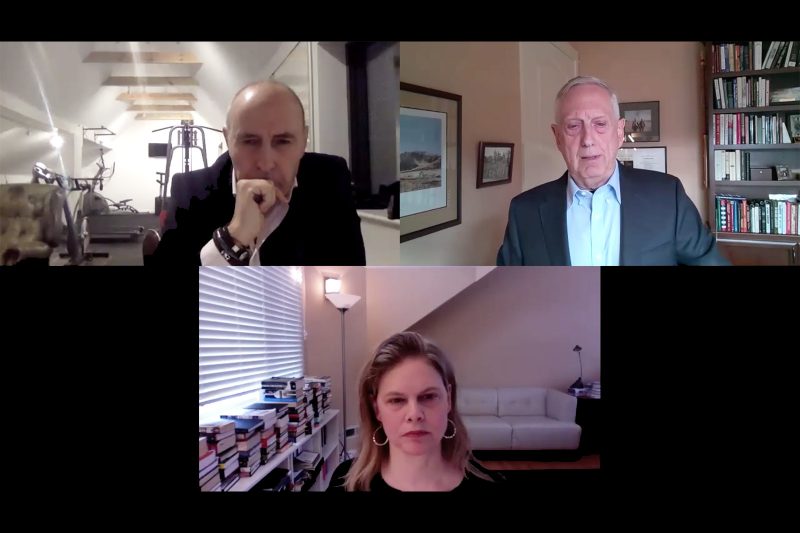Guest speakers were Gen. Jim Mattis and Lt. Gen. Sir Graeme Lamb
More than 500 attendees joined the Feb. 9 webinar, “After Trump: What’s Next for America, At Home and Abroad.”
Panelists included Gen. Jim Mattis, former U.S. Secretary of Defense and Commander of U.S. Central Command, and Lt. Gen. Sir Graeme Lamb, former Jackson Senior Fellow and Commander of the UK Field Army.
Beverly Gage, Brady-Johnson Professor of Grand Strategy and of History, moderated the discussion, which was co-sponsored by Yale’s Brady-Johnson Program in Grand Strategy.
Gage opened the discussion by asking panelists to comment on the long-term impact of the Trump presidency and the state of global alliances.
“Trust in America’s leadership and reliability as a security partner has been shaken, not stirred,” Mattis quipped.
The Marine Corps four-star general underscored the importance of alliances and cautioned against the U.S. going it alone, citing the actions of past administrations going back to the 1990’s.
With the Biden administration, “we’re going back to a more multilateral approach,” Mattis said, and moving away from Trump’s “megaphone diplomacy.”
Offering a view from across the pond, Lamb reflected on what it means to have a government “of the people, by the people, for the people,” pointing to the influence of lobbyists, political action committees, and the electoral college system.
Lamb questioned whether U.S. elected representatives are acting in the best interests of the people or of their political parties.
“We must take stock of what we’re defending and why we’re defending it,” he said. “Because otherwise it will pass and we will lose everything that has taken centuries to achieve in a heartbeat,” Lamb warned.
Mattis echoed the call to defend ‘the great American experiment’ of democracy, with an ominous warning: “not all experiments work.”
The remedy? Better civics education in schools and rededicating ourselves to compromise. “We’re building a country here. It’s hard work. You have to work with people through compromise,” he said.
Panelists also took audience questions on a range of topics, including how to confront China; the state of civil-military relations; extremism in the military ranks; and global partnerships.
